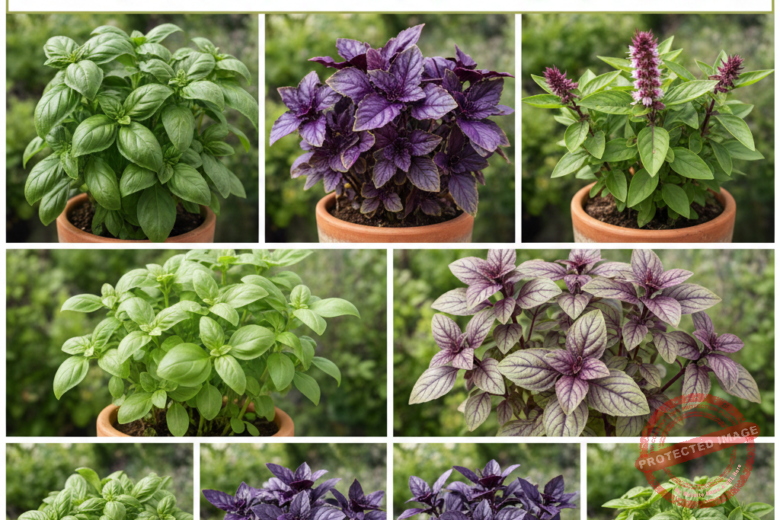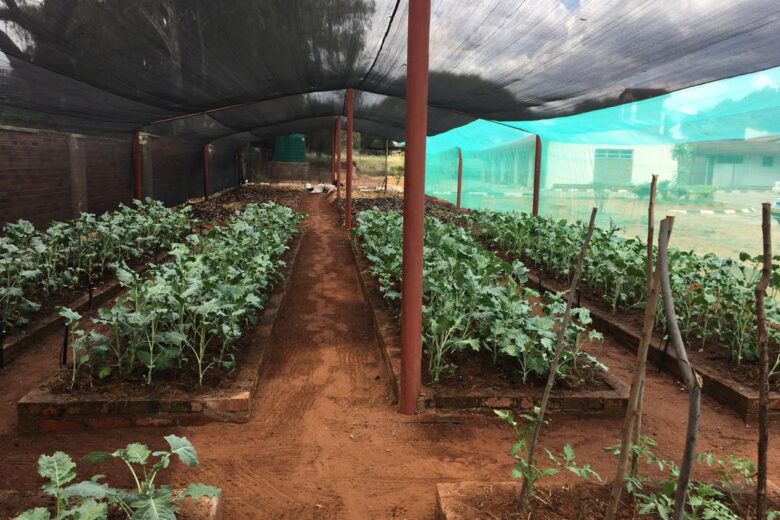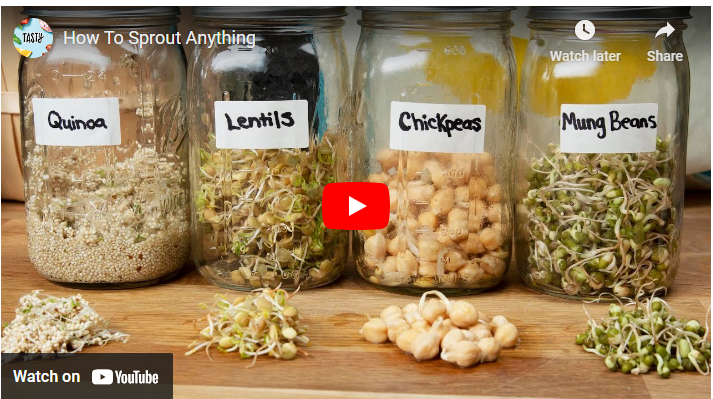Black soil is a type of soil with a high clay content, which can be found in various parts of the world. It is known for its ability to hold moisture and fertility, making it an ideal growing medium for many crops.
Black soil is highly productive and is suitable for a wide variety of crops, some of which include cereals, pulses, oilseeds, cereals, vegetables, and fruits.
With proper management and rotation of crops, black soil can be a very productive and profitable resource for you.
This article will provide an overview of the crops suitable for black soil, as well as some tips for successful cultivation.
Crops Suitable For Black Soil
Black soil is a type of soil that is rich in organic matter, which makes it good for growing crops. Black soil is a type of soil rich in organic matter and clay, making it great for growing a variety of crops.
Grains
Examples of common grains suitable for black soil include Wheat, Rice, Barley, Rye, Sorghum,
Read Also: List Of Crops Suitable For Alluvial Soil [Farmers Guide]
Vegetables
Black soils are a type of soil containing high amounts of clay and are well suited for growing vegetables. Some vegetables that can grow well in these soils include Tomatoes, Eggplants, Peppers, Carrots, Broccoli, Cabbage, Onion, Radish, Spinach
Fruits
Black soils are a type of soil containing high amounts of clay and are well suited for growing fruits. Some fruits that can grow well in these soils include Apples, Bananas, Pears, Oranges, Grapes, Strawberries, Melons, Plums, Peaches, sugarcane.
Read Also: List OF Crops Suitable For Alkaline Soils [Farmers Guide]
Legumes
Legumes and cereals are both suitable for black soil. Legumes are ideal for black soil because they produce nitrogen, which helps to enrich the soil.
Black soil is usually rich in minerals, so legumes can help to increase the fertility of the soil and make it more productive.
Examples of common legumes suitable for black soil include Peas, Beans, Lentils, Chickpeas, Soybeans.
Read Also: List OF Crops Suitable For Alkaline Soils [Farmers Guide]
Cereal
Cereals, such as wheat and rice, are also well-suited to black soil. The soil’s mineral content provides the necessary nutrients for the growth of cereal crops.
The soil’s moisture retention capabilities also help to ensure that the plants receive the necessary amount of water. Black soil also has the ability to retain heat, which is beneficial for the growth of wheat and rice.
Examples of common cereal suitable for black soil include Maize, Millet, Wheat, Rice, Barley, Oats, oil seed, tobacco.
Read Also: List Of Crops Sensitive To Salinity [Farmers Guide]
Root Crops
Examples of common root crops suitable for black soil include Carrots, Ground nuts, Turnips, Beets, Parsnips, Potatoes, Radishes, Sweet Potatoes, Yams
Tree Crops
Tree crops thrives in black soil due to its high organic matter content, which helps retain moisture and nutrients. Examples of common tree crops suitable for black soil include Mangoes, Olives, Almonds, Walnuts, Pecans, Cashews, Apples, Peaches, Plums, Cherries.
Flowers
Examples of common flowers suitable for black soil include Marigolds, Petunias, Asters, Zinnias, Pansies, Impatiens, Columbines, Snapdragon.
Features of Black Soil
Black soil is known for its high clay content, which is typically 62% or more, and lacks gravel or coarse sand. Additionally, it is composed of 10% alumina, 9-10% iron oxide, and 6-8% lime and magnesium carbonates.
Read Also: List Of Crops Suitable For Acidic Soil [Farmers Guide]
Soil Preparation Techniques for Planting Crops Suitable for Black Soil
To prepare the soil for planting crops, here are some techniques you can apply.
- Start by removing any weeds, rocks, and other debris from the soil.
- Mix in organic materials such as compost, aged manure, and peat moss to help improve the soil structure and increase its nutrient content.
- Till the soil to a depth of 8-12 inches and break up any large chunks.
- Spread a 2-4 inch layer of organic matter over the soil and mix it in.
- Add a 2-3 inch layer of mulch to help retain moisture and reduce weed growth.
- Test the soil to determine its pH level. If the pH is too high or low, add lime or sulfur to adjust it to the right range.
- Water the soil thoroughly and wait for it to dry before planting.
- Plant your desired crops and water regularly.
Benefits of Growing Crops Suitable for Black Soil
Growing crops in black soil has some benefits. They include:
1. Better Nutrient Uptake
Growing crops suitable for black soil allows for better nutrient uptake due to the high levels of clay and organic matter in the soil. This means that crops grown in black soil are more likely to be healthy and have higher yields.
Read Also: 100 Crops Resistant To Drought
2. Better Water Retention
Black soil has a higher water retention capacity than other soils, meaning that crops grown in it require less watering and are more resistant to droughts.
3. Increased Fertility
The high organic matter content in black soil increases its fertility, making it an ideal choice for growing crops.
4. Improved Soil Structure
The clay particles in black soil help to improve its structure, making it easier to cultivate and providing better drainage. This helps to reduce the chances of waterlogging and crop diseases.
5. Reduced Risk of Erosion
The high clay content in black soil makes it more resistant to erosion, helping to protect crops from wind and water damage.
6. Low Fertilizer Requirements
Crops grown in black soil do not require as much fertilizer as those grown in other types of soil, which reduces the environmental impact of farming.
How to Control Pest and Disease for Crops Suitable for Black Soil
It is important to manage pests and diseases when growing crops on black soil. here are some tips on how to control pests and diseases.
1. Rotate Crops
Rotating crops grown in the same area can help to reduce the occurrence of pests and diseases. This is because some pests and diseases are specific to certain crops and when these crops are not planted in the same area for consecutive years, it reduces the risk of these pests and diseases becoming established in the soil.
2. Use Resistant Varieties
Planting resistant varieties of crops can help to reduce the risk of pests and diseases. Resistant varieties are bred to have a natural resistance to certain pests and diseases.
3. Use Natural Predators
Introducing natural predators of pests and diseases can help to control the population of these organisms. For example, ladybugs feed on aphids and can help to reduce an aphid infestation.
4. Proper Soil Management
Proper soil management is essential for preventing and controlling pests and diseases. This includes managing soil fertility by applying appropriate fertilizer, adding organic matter, and managing soil pH.
5. Cover Crops
Cover crops can help to reduce the occurrence of pests and diseases by competing with them for resources. For example, planting a cover crop of clover can help to suppress weeds and reduce the risk of diseases caused by weeds.
6. Crop Rotation
Crop rotation is a useful tool for reducing the occurrence of pests and diseases. It involves growing different crops in the same area in a cyclical pattern. This reduces the risk of pests and diseases becoming established in the soil and helps to maintain soil fertility.
Fertilizer Requirements for Growing Crops Suitable for Black Soil
Fertilizers are essential for providing essential nutrients to crops grown in black soil. Black soil is rich in iron, aluminum, and other minerals but low in organic matter and nitrogen.
As a result, you need to apply fertilizer to improve the fertility of their soil and ensure optimal crop growth.
Organic fertilizers are best for black soil because they are slow-releasing, providing a steady supply of nutrients.
Manure, compost, and green manures are all excellent sources of organic fertilizer for black soil. Compost can be made from kitchen waste, garden debris, or animal manure.
Green manures are leguminous crops that are grown for their nitrogen-fixing properties.
Inorganic fertilizers can also be used to supplement the nutrient levels in black soil.
These fertilizers are high in nitrogen, phosphorus, and potassium, the building blocks of plant growth. Ensure to follow the fertilizer label instructions and apply the fertilizer at the right time and rate to ensure optimal crop growth.
The Best Time to Plant Crops Suitable for Black Soil
The best time to plant crops suitable for black soil is during the late spring or early summer.
This is because black soil is typically high in organic matter and retains moisture well, making it ideal for growing crops during the rainy season.
Additionally, black soil is often found in areas with mild temperatures, making it a suitable location for planting at this time.
Factors That Affect Crop Performance on Black Soil
1. Soil Fertility
The fertility of the soil is a major factor that affects crop performance on black soil. Elemental nutrients such as nitrogen, phosphorus, and potassium are essential for crop growth and must be present in the correct ratios for optimal performance.
Soil fertility can be improved by the addition of organic matter, which increases the availability of nutrients.
2. Water Availability
Water availability is another important factor that affects crop performance on black soil. Adequate water is necessary for healthy crop growth and must be replaced as it is lost through evapotranspiration.
Over-watering can lead to water-logging and nutrient leaching, which can reduce crop yields.
3. Soil pH
The pH of the soil also affects crop performance on black soil. Most crops prefer soil with a neutral pH (6.5-7.5) as they cannot absorb essential nutrients from soil with a pH outside of this range. If the soil is too acidic or too alkaline, it can reduce crop yields.
4. Soil Texture
The texture of the soil also affects crop performance on black soil. Soils with a high clay content tend to retain more water and nutrients, while those with a high sand content tend to have better drainage and aeration.
The ideal soil texture for optimal crop growth is a combination of both clay and sand particles.
5. Soil Structure
The structure of the soil also affects crop performance on black soil. Soils with a good structure have good drainage and aeration, which are essential for healthy root growth and crop performance.
Poorly structured soils can lead to waterlogging and nutrient deficiencies, which can reduce crop yields.
Advantages of Growing Crops in Black Soil
Growing crops in black soil has its advantages such as:
- Black soil holds more moisture than other types of soil, providing crops with sufficient irrigation.
- The high clay content of black soil adds texture and structure which aids in improved drainage.
- Black soil is rich in essential nutrients, making it ideal for growing many types of crops.
- It has a high cation exchange capacity (CEC) which allows it to retain and store more nutrients for plants.
- The particles of black soil are stable and do not easily erode or become compacted, allowing for better aeration for crops.
- The dark color of black soil absorbs more heat from the sun which helps crops to grow faster.
- The high organic content of black soil helps to improve soil fertility and support the growth of beneficial organisms.
- Black soil is easy to work with and fairly easy to cultivate.
- It has a high water-holding capacity and can retain moisture longer than other types of soil.
- Black soil is great for growing vegetables and other crops that require high levels of nutrients.
Challenges of Crops Suitable for Black Soil
Growing crops on black soil is not without its challenges. The challenges include:
1. Nutrient Deficiency
The black soil is known to be low in essential nutrients such as nitrogen, phosphorus, and potassium. This can lead to poor crop yields and a lack of growth.
2. Poor Drainage
The black soil has a high clay content that makes it dense and slow to drain. This can cause waterlogging and lead to root rot and other crop diseases.
3. Unsuitable pH
The black soil has a high pH, which can make it difficult for certain crops to absorb essential nutrients from the soil.
4. Low Organic Matter
The black soil contains very little organic matter, making it difficult to promote healthy crop growth.
5. High Salinity
The black soil has a high salt content, which can damage crops and reduce yields.
6. Pests and Diseases
The black soil has a tendency to attract pests and diseases, which can further reduce crop yields.
Disadvantages of Growing Crops in Black Soil
Growing crops in black soil has its disadvantages such as:
1. Poor Aeration
The compact structure of black soil reduces air movement, making it difficult for crops to access the oxygen they need to grow.
2. Poor Drainage
The dense structure of black soil also prevents water from draining properly, leading to waterlogging and anaerobic soil conditions.
3. Low Organic Matter Content
The low organic matter content of black soil means it can be less nutrient-rich than other types of soil, leading to poor crop yields.
4. Type of Nutrients
The nutrients found in black soil tend to be less available to plants, making it difficult for plants to access the nutrients they need to grow.
5. Nutrient Leaching
Black soil is prone to nutrient leaching, leading to nutrient deficiencies in the soil and poor crop yields.
6. Acidic Soil
Black soil often has a high acidity level, which can be toxic to certain crops.
7. Susceptible to Erosion
The loose structure of black soil makes it vulnerable to wind and water erosion.
Tips to Grow Crops with Black Soil
1. Ensure Proper Drainage Of Water
Black soil is heavy and clay-like in texture. It tends to retain water for longer periods, so it is important to ensure proper drainage of water.
This can be done by incorporating organic matter into the soil at regular intervals. This will improve the water holding capacity and also help in the drainage of excess water.
2. Use Organic Fertilizers
Organic fertilizers help in improving the fertility of the soil. They also help in improving the porosity of the soil, which helps in better absorption of water and nutrients.
3. Use Seeds Suited For The Soil Type
Not all seeds are suited for black soil. Choose varieties of seeds that are specifically suited for this soil type.
4. Add Organic Matter Regularly
Adding organic matter like compost or manure to the soil helps in improving fertility of the soil. It also helps in improving the porosity of the soil, which helps in better absorption of water and nutrients.
5. Irrigate The Soil Regularly
Regular irrigation is essential for crops grown in black soil. This helps in providing the necessary amount of moisture to the soil.
6. Improve The Aeration Of Soil
Black soil tends to be heavy and clay-like in texture. It is important to improve the aeration of the soil to ensure adequate oxygen supply to the roots of the plants. This can be done by incorporating organic matter or by mechanical means like tilling.
Steps On how to Grow Crops Using Black Soil
Follow the steps below to successfully grow crops in black soil.
Step 1. Test soil PH
Test the soil to determine the soil pH, nutrient content, and other factors. To do this, you will need a soil testing kit.
Step 2. Till the soil
This can be done either manually or with a motorized tiller. Make sure to get the soil to a depth of at least 12 inches.
Step 3. Fertilizer Application
Add fertilizer and compost to the soil. This will help to provide the necessary nutrients for the crops to grow.
Step 4. Water the Soil
Make sure to give the soil enough water to keep it moist but not saturated.
Step 5. Seed Planting
Plant the seeds or seedlings. Depending on the crop, you may need to use different types of seeds or seedlings.
Step 6. Monitor The Soil’s Moisture Level
Make sure to keep the soil moist but not oversaturated.
Step 7. Weed the area regularly
This will help keep the weeds from competing with your crops for water and nutrients.
Step 8. Harvest
Harvest the crops when they are ready. Make sure to harvest them at the right time for optimal flavor and nutrition.
Black Soil Is Not Suitable For Which Crop
Black soil is not suitable for growing crops that require well-drained soil, such as rice and wheat. It is also not suitable for growing vegetables and fruits that require a lot of nutrients, such as tomatoes and peppers.
Additionally, black soil is not suitable for growing crops that require a lot of water, such as potatoes and carrots, as it tends to be too waterlogged.
Horticulture Crops Suitable For Black Soil
Horticultural crops suitable for black soil include rice, wheat, maize, sorghum, millet, cotton, oilseeds, sugarcane, groundnut, pulses, fruits, and vegetables.
The crop production in black soil depends on soil fertility, water availability and climatic conditions.
Rice is the most common crop grown in black soil and is suitable for both irrigated and rainfed conditions.
Wheat is another crop that is well suited to black soil, with good yields in both irrigated and rainfed conditions.
Maize and sorghum are other cereals grown in black soil, while millet is mainly grown in rainfed conditions.
Cotton is an important cash crop grown in black soil, while oilseeds, sugarcane, groundnut, and pulses are also grown in black soil.
Fruits and vegetables can also be grown in black soil, but they require more water and attention.
Vegetables Grown In Black Soil
Vegetables grown in black soil are very nutritious and have a rich flavor. The soil contains high levels of organic matter, which is beneficial for plant growth.
The soil also contains more minerals and nutrients than other soil types, making it ideal for growing vegetables.
Vegetables grown in black soil are known to have a sweeter taste than those grown in other soil types. The soil also helps retain moisture and prevents the vegetables from drying out.
Some popular vegetables that can be grown in black soil include tomatoes, potatoes, eggplants, peppers, zucchinis, squash, and cucumbers.
Black Soil Matter
Black soil is a type of fertile soil rich in organic matter and clay. It is dark in colour due to the high humus content, which is the organic material in soil that helps retain moisture and nutrients.
The soil is ideal for growing crops such as cotton, wheat, millet, and other crops that need a lot of water and nutrients. It is most commonly found in the Indo-Gangetic Plains of India.
Which Crops Grow Best In Black Soil
Black soil is ideal for growing crops such as cotton, wheat, maize, sugar cane, jowar, bajra, pulses, and oilseeds. It is also suitable for plantation crops such as coffee, tea, rubber, and cashew.
Is Black Soil Good For Agriculture
Yes, black soil is good for agriculture. It is a type of soil rich in organic matter and minerals, which makes it fertile and well-drained. It holds moisture and nutrients well, making it an ideal soil for growing crops.
What Is Black Soil Best For
Black soil is best suited for growing crops such as cotton, wheat, sugarcane, corn, and soybeans due to its high fertility and clay content. It is also rich in minerals, organic matter, and nutrients, making it an ideal choice for crop production.
Conclusion
Black soil is ideal for growing a variety of crops such as cotton, wheat, jowar, bajra, pulses, oilseeds, sugarcane and tobacco, and most horticultural crops, as well as vegetables. It has good water-holding capacity and is suited to a variety of soil pH levels. It can also be used to grow cash crops such as soybean, groundnut, sunflower, and castor. Its fertility and high clay content make it an ideal soil for agricultural crops.



